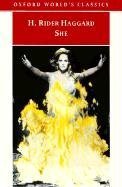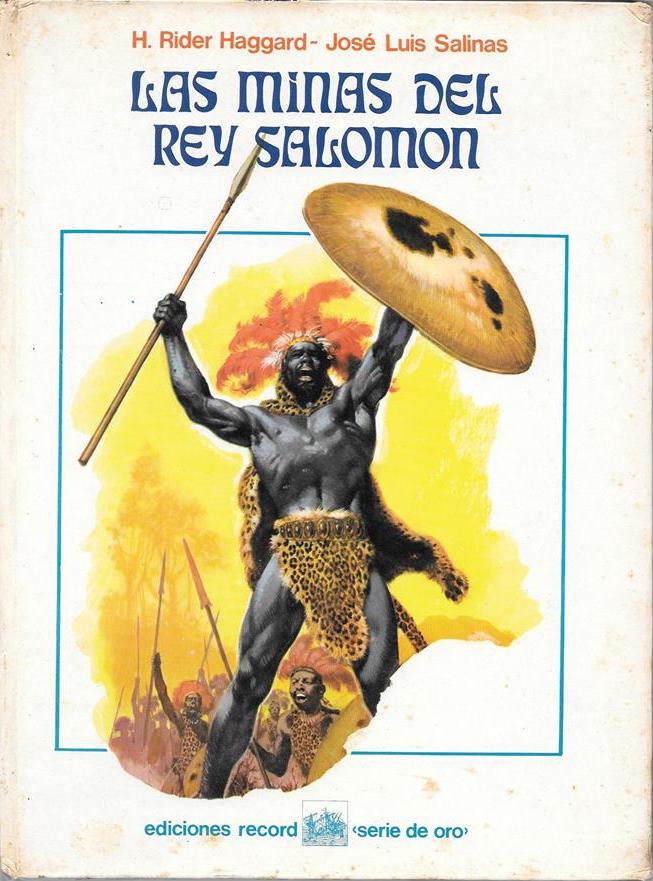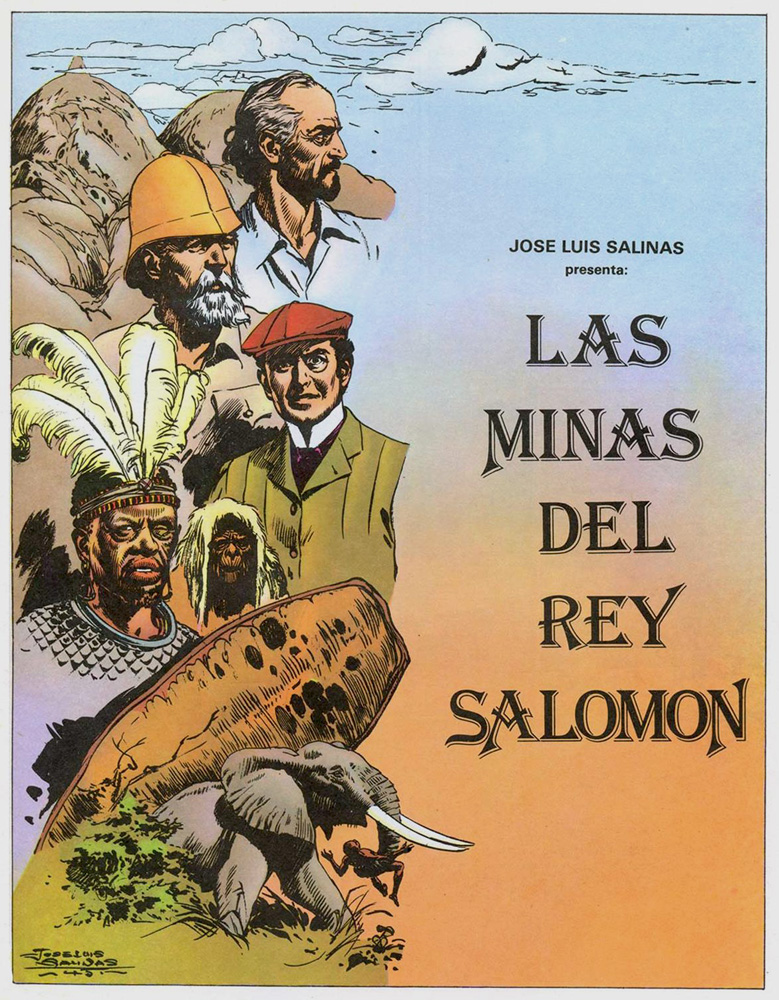|
|
Post by deuce on Jan 4, 2018 11:02:37 GMT -5
Kelly Freas frontispiece to the Easton edition of She:   |
|
|
|
Post by deuce on Feb 9, 2018 0:58:51 GMT -5
English horror author, Tom Holland, mentions his early love of HRH and how that influenced his novel, Slave of My Thirst, in this interview: www.sfsite.com/07a/th60.htm |
|
|
|
Post by deuce on Feb 18, 2018 3:32:53 GMT -5
|
|
|
|
Post by deuce on Mar 3, 2018 14:19:18 GMT -5
This is a rare one... 
|
|
|
|
Post by deuce on Mar 7, 2018 12:36:25 GMT -5
"But my favorite writers, both of prose and verse, are British or Americans. They are A. Conan Doyle, Jack London, Mark Twain, Sax Rohmer, Jeffery Farnol, Talbot Mundy, Harold Lamb, R.W. Chambers, Rider Haggard, Kipling, Sir Walter Scott, Lane-Poole, Jim Tully, Ambrose Bierce, Arthur Machen, Edgar Allen Poe, and last, but no means least, yourself."
-- Robert E. Howard to H. P. Lovecraft,
December 1932
 |
|
|
|
Post by deuce on Mar 28, 2018 0:20:16 GMT -5
Zebra, 1978...  |
|
|
|
Post by deuce on Mar 30, 2018 10:58:04 GMT -5
CS Lewis, commenting on Haggard and She: "The mythical status of She is indisputable. As we all know, Jung went to it for the embodiment of an archetype. But even Jung did not, I think, get to the centre. If his view were right, the myth ought to function only for those to whom Ayesha is a powerfully erotic image. And she is not so for all who love She. . . . Ultimately the life of the myth is elsewhere.
The story of Ayesha is not an escape, but it is about escape; about an attempt at the great escape, daringly made and terribly frustrated. Its closest relative, perhaps its child, is Morris’s Well at the World’s End, which came ten years later. Both stories externalise the same psychological forces; our irreconcilable reluctance to die, our craving for an immortality in the flesh, our empirical knowledge that this is impossible, our intermittent awareness that it is not even really desirable, and (octaves deeper than all these) a very primitive feeling that the attempt, if it could be made, would be unlawful and would call down the vengeance of the gods. (...)
This hatred [of literary critics for Haggard’s novels] comes in part from a reluctance to meet Archetypes; it is an involuntary witness to their disquieting vitality. Partly, it springs from an uneasy awareness that the most ‘popular’ fiction, if only it embodies a real myth, is so very much more serious than what is generally called ‘serious’ literature. For it deals with the permanent and inevitable, whereas an hour’s shelling, or perhaps a ten-mile walk, or even a dose of salts, might annihilate many of the problems in which the characters of a refined and subtle novel are entangled." |
|
|
|
Post by deuce on Apr 10, 2018 0:38:40 GMT -5
In the early '80s, Ray Harryhausen began work on a production of TPotM. It fell through. What a shame. Pre-production work by Ray from 1983.  |
|
|
|
Post by deuce on Apr 29, 2018 14:47:52 GMT -5
|
|
|
|
Post by deuce on May 2, 2018 10:58:57 GMT -5
|
|
|
|
Post by deuce on May 2, 2018 11:25:56 GMT -5
Whoa! An interview with the great man himself, caught on film in his last years:
|
|
|
|
Post by deuce on May 5, 2018 8:23:23 GMT -5
|
|
|
|
Post by deuce on May 23, 2018 9:49:00 GMT -5
|
|
|
|
Post by deuce on May 30, 2018 0:04:39 GMT -5
The Argentine comics artist, Jose Luis Salinas, adapted Ayesha: The Return of She and King Solomon's Mines in the decades after World War II.    |
|
|
|
Post by deuce on May 30, 2018 23:33:04 GMT -5
Hammer was on a roll. Not only was Ursula Andress the star of She, but Christopher Lee (along with Peter Cushing) was one of the main supporting actors. Considering that he was an REH and JRRT fan, it wouldn't surprise me if Sir Christopher wasn't also an HRH fan as well.  |
|